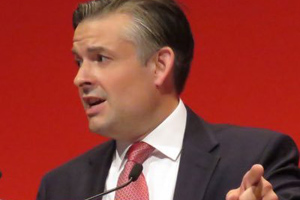Labour pledges to train 5,000 new GPs a year

The Labour Party has promised to train an extra 1,500 GPs a year if elected.
Announcing the policy at the Labour Party conference this weekend, shadow health secretary Jonathan Ashworth said he hoped this would relieve the burden on GPs.
In 2015, former health secretary Jeremy Hunt set a target of recruiting 5,000 GPs by 2020. Health secretary Matt Hancock also committed to this, and said he would ‘look’ at setting a new deadline for the the goal.
However, the latest GP workforce data showed that the NHS has lost 576 full-time equivalent, fully qualified GPs over the past year.
Mr Ashworth, said: ‘We all know how difficult it is to get a GP appointment, trying to get through on the phone and then forced to wait weeks to see a family doctor.
‘But I also know the pressures our GPs are under day in, day out. We’ve lost just over 1,600 full-time GPs under the Tories and GPs tell me they are overworked, exhausted and pushed to the brink.’
He added: ‘Labour will expand GP training places by 1,500, raising the number of places to 5,000 a year.’
‘I’ve had GPs tell me when they get home, they burst into tears and they’re worried that they’re not providing the safe level of care that their patients deserve, that it can feel like they’re seeing up to 60 patients a day. I think if we can recruit more GPs, we can be providing more GP appointments.’
He also told Pulse: ‘Of course, things are not going to be resolved overnight but it’s important that we’re putting the investment in now. It’s important to put in investment into capital and infrastructure in primary care as I’ve seen GPs operating out of portacabins.’
Dr Richard Vautrey, BMA GP Committee chair, said: ‘We are desperately short of doctors across the NHS and the BMA has long been calling for more staff to ease the pressures currently facing our NHS. The Labour promise to increase the number of GP trainees in England by 50% is a welcome move.
‘As this announcement rightly points out, keeping GPs is just as important as recruiting them so we also need to see plans to address the issues leading to so many GPs leaving the profession or suffering high levels of stress and to support our existing and experienced workforce, not only to provide high-quality patient care, but to help mentor and guide the next generation of family doctors.’









